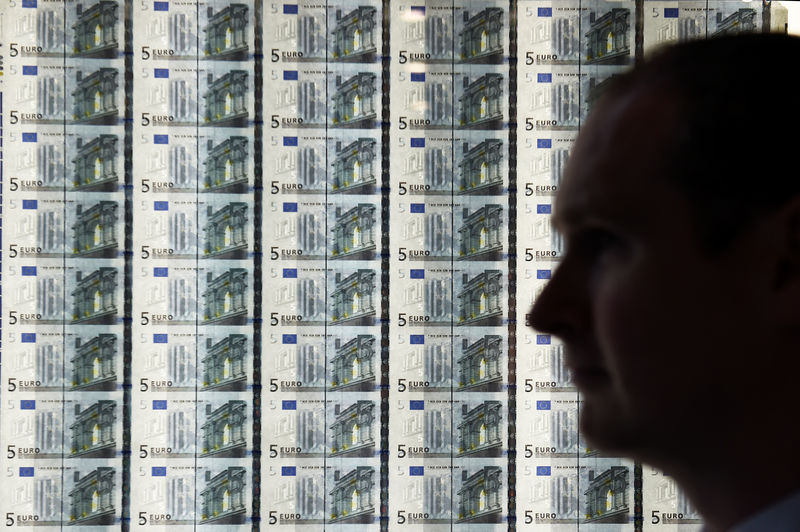By Shinichi Saoshiro
TOKYO (Reuters) - The euro slipped to a two-month low on Wednesday, as markets waited to gauge the European Central Bank's stance on policy amid bubbling expectations that it could eventually lower interest rates and join the global easing trend.
The common currency (EUR=) was 0.05% lower at $1.1145 after touching $1.1143, its lowest since May 31. It had already lost more than 0.5% the previous day and shed nearly 0.7% so far this week.
The euro's decline has quickened ahead of the ECB's policy meeting on Thursday. While markets have pared their bets the central bank would cut rates by 10 basis points, they still expect dovish guidance, paving the way for easing in September.
"Attempts within the currency market to price in dovish moves or language by the ECB have gathered pace over the last few days, leading to the euro's steep decline," said Yukio Ishizuki, senior currency strategist at Daiwa Securities.
"The key point is not necessarily whether the ECB eases this week or not, but what kind of language (President Mario) Draghi employs regarding policy direction."
The euro was also seen weighed down as the pound slumped toward a two-year low after Boris Johnson on Tuesday won the contest to be the next British prime minister and raised the specter of a no-deal Brexit.
Sterling was a touch lower at $1.2433, on track for its fourth straight day of losses and edging closer to $1.2382, the two-year trough brushed last week.
The dollar hovered near a one-week high of 108.290 yen scaled overnight, supported by a rise in U.S. Treasury yields as investor risk aversion waned following some progress in U.S.-China trade negotiations.
U.S. Trade Representative Robert Lighthizer and senior U.S. officials will travel to Shanghai on Monday for face-to-face trade meetings with Chinese officials, Bloomberg reported on Tuesday, citing unnamed sources.
The greenback also firmed after Washington on Tuesday reached a deal to lift government borrowing limits. Analysts reckon increased U.S. borrowing would tighten the supply of money in the country's banking system and in turn support the dollar.
The dollar index (DXY) edged up to a five-week high of 97.755, following gains of nearly 0.5% the previous day.
"In addition to the euro's weakness ahead of the ECB meeting, the dollar is supported as market participants continue to discount the likelihood of the Fed cutting rates by 50 basis points at next week's FOMC (Federal Open Market Committee) meeting," said Ayako Sera, senior market economist at Sumitomo Mitsui Trust.
Speculation that the Federal Reserve would lower rates by 50 bps at its July 30-31 meeting had increased earlier this month following comments from some senior Fed officials, but investors now see a shallower 25 bp cut as more likely.

The Australian dollar fell to a 12-day low of $0.6978 after Westpac Banking Corp brought forward the timing of its forecast for the next rate cut by the Reserve Bank of Australia (RBA) to October, from November previously. The Aussie last traded down 0.35% at $0.6980.